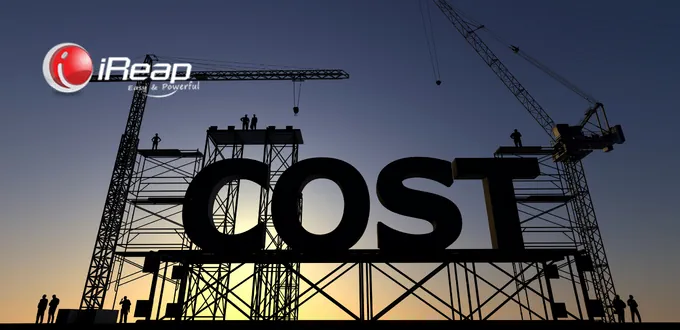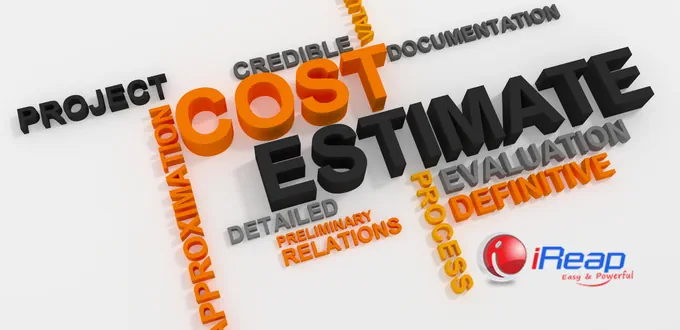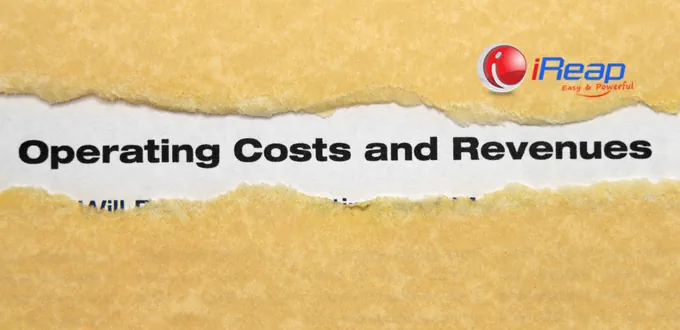
What is meant by cost? The definition of cost is the amount that the company spends to produce a product or service.
Calculating the number of expenses that come out is very important. Because related to the benefits that companies get in doing business, to be more explicit, first consider the following types of costs and why you need to calculate these costs.
Why is Cost Calculating Important?
Costs are expenses that companies need to do to run their business. Each cost type has its function and must be appropriately calculated to protect the company.
For example, labour costs, such as wages, benefits, or salaries, affect production costs. Automatically, these costs will also affect product prices.
But only some types of cost that you calculate have to match its input and output. An example of the expenses in a service business.
Sometimes, the advertising costs you incur are higher than the number of clients who come from these advertisements and want to use your services.
Qualitative factors also need to be considered so that in calculating, you need to understand in advance the types of costs and their functions.
Then, why is it important to calculate the cost? So that as a businessman or business owner, you can find out how much you spend in one period and how much business profit you can get from that period.
Knowing how much the company pays for various costs also helps you make better future business development decisions.
Types of Costs in Business that You Must Know

1. Production Cost
Production costs are expenditures of funds needed to produce goods or services. This production cost includes operational costs (office, factory, warehouse, distribution, etc.), raw materials, and labour costs.
Example of production costs:
- Purchase of raw materials IDR 5,000,-
- Employee salary per shoe Rp. 2,000,-
Then the production cost for one shoe is IDR 7,000
2. Administration Fee
Administration Costs or administrative costs are costs incurred to control and operate the business, costs related to management, making company regulations, organizations, etc.
What includes administrative costs are all costs that fall into the category of overhead costs (all costs that still appear in the income statement but are not directly related to the production of goods or services).
For example, we rented business premises, warehouse rental, office equipment costs, etc.
3. Cost of Sales
Selling costs or selling costs are all expenses that aim to ensure products/services can be sold.
This sales cost includes all costs related to marketing and advertising activities. For example, advertising on social media, printing brochures, renting billboards, etc.
4. Distribution Fee
Distribution costs or distribution costs are all expenses related to efforts to distribute products and services so that consumers easily find them.
Simply put, this distribution cost is related to distributing products to markets, shops, mini markets, or sending products directly to consumers.
5. Raw Material Cost
The cost of raw materials is the amount the company must spend to purchase raw materials to produce goods for sale.
Examples of raw material costs are the purchase of fabric (for a convection business), shoe leather (if the production makes shoes), spices and food raw materials (for a culinary business), and so on.
Usually, the calculation of the cost of raw materials includes expenses incurred in purchasing raw materials, such as transportation services, shipping costs, packaging, and so on.
6. Labor Costs
Labour costs are costs that come out related to labour during the production process. Some examples are salary/wages, overtime pay, meal allowance, allowances, etc.
7. Operational Cost
Operational or operational costs are costs related to the daily activities of a company and generally cannot be calculated based on only one type of product produced.
Certain factors make operational costs variable, for example, maintenance and repair costs for production equipment, building/factory utility costs, electricity and communication costs, etc.
8. Variable Costs
Almost similar to operational costs, the calculation of variable costs must also be detailed because variable costs are types of costs that fluctuate or change depending on the output produced at that time.

9. Fixed Costs
Fixed or fixed costs are costs whose value is always constant and does not depend on the production volume.
This cost is not affected by a particular period or activity—for example, business environment security contributions and employee salaries whose nominal value is fixed every month.
10. Direct Cost
Direct or direct costs are costs associated with producing goods or services. Example of direct costs: your business is engaged in the production of snacks.
Then the direct costs related to the show, for example, workers’ salaries and raw materials used to produce snacks.
11. Indirect Costs
Indirect costs are costs incurred by the company. Still, they are not identified as directly related to production, for example, depreciation costs for equipment and buildings, costs associated with administration, electricity costs, etc.
12. Opportunity Cost
Opportunity costs or opportunity costs are the costs that come out when you make an investment or develop a business.
For example, you buy a new building to open a business branch, purchase new machinery, buy a car to expedite the distribution process, and so on.
13. Sunk Cost
Sunk costs are costs that a company incurs but produces nothing (and do not cause a direct loss to the business). Example, you invested in a new business that went bankrupt.
14. Controlled Costs
Controllable or controllable costs are expenditures of an amount of money that the company can still control. For example, the cost of purchasing office stationery and supplies, advertising, donations to charity, etc.
The various types of fees you have just read in this article explain the types of costs in general. Every expense that comes out, of course, impacts business development differently. That’s why you need to do the calculations carefully. Those are some things and types of business costs. Every business requires these costs. Of course, cost control is also a priority.
However, in recording business finances, it is necessary to classify costs to facilitate financial calculations and analysis. For that, find out more about Cost Classification in Business; come on.



